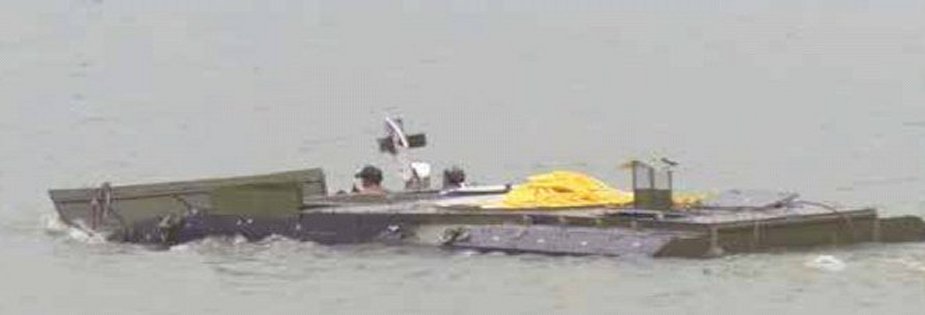Indian Army DRDO WhAP 8x8 Armoured Vehicle Tested In High Altitude

TATA Motors unveiled its Wheeled Armoured Platform (WhAP) at DefExpo 2014 in Delhi. The vehicle platform is developed jointly with the DRDO's Vehicle Research & Development Establishment (VRDE) in Pune. The WHaP is still in the trial phase including high-altitude and floating tests. Considering the high tension between India and China over border issues, these high-altitude tests get a particular interest.
TATA Motors is the first private sector OEM in India which has developed WhAP (Wheeled Armoured Amphibious Platform), an Infantry Combat Vehicle, designed for optimised survivability, all-terrain performance and increased lethality jointly with the Indian Defence Research and Development Organisation (DRDO).

WHaP during flotation tests
In recent years, TATA Motors has made a strategic shift from the Logistic vehicles space to the Combat vehicle space by focusing on the development of contemporary state-of-the-art combat vehicle platforms (tracked and wheeled); with the dual purpose of empowering India’s Defence Forces with breakthrough technologies and increasing the nation’s self-reliance in this critical area. The idea is to ensure high mobility, firepower and protection to the forces for their various missions by developing world-class armoured fighting vehicles.
The WhAP with its BMP-2 turret offers a new generation of combat vehicle offering a high level of protection, mobility based on an 8x8 chassis and firepower with the turret armed with a stabilised 30 mm cannon 2A42 and a 7.62 mm PKT coaxial machine gun mounted to the left of the main armament with 2,000 rounds. Mounted on the turret roof between the gunner's and commander's hatches is a launcher for an AT-4 Spigot or AT-5 Spandrel ATGM (Anti-Tank Guided Missile) which has a maximum range of 4,000m.
The WhAP has a weight of around 25 tons and is powered by a 600 hp. diesel engine. It can reach a maximum road speed of 100 km/h. For amphibious operations, the WhAP is propelled in the water at a maximum speed of 10 km/h thanks to two hydrojets mounted at the rear of the vehicle.



No comments:
Post a Comment